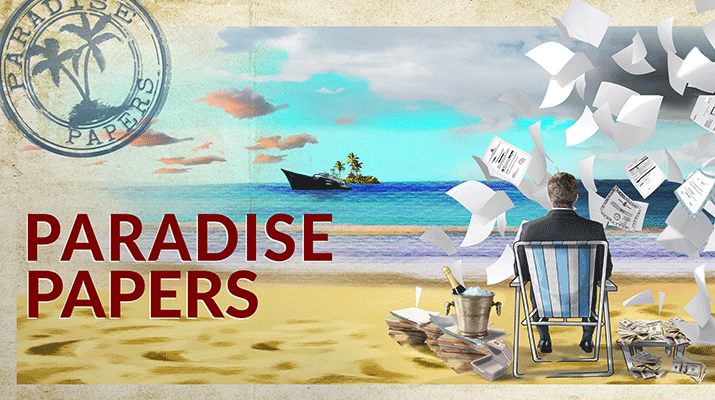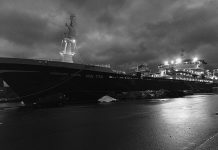By Shinovene Immanuelan Will Fitzgibbon | 2 July 2019
AN international fishing company which partnered 12 highly connected Namibians, including politicians and a retired military general, is at the centre of allegations that it has been cheating on taxes in Namibia.
Global fish trader Pacific Andes, which specialises in the processing, distribution and sales of seafood products, is registered in Bermuda in the Caribbean. The company, controlled by the Malaysian Ng family, was formed by Malaysian-Chinese businessman Ng Swee Hong in 1986.
Documents show that Pacific Andes used another of its companies, registered in Mauritius but with no employees, to move money back and forth, and to channel fees and profits from high-tax Namibia into low-tax jurisdictions.
Pacific Andes strongly rejected claims that it cheated the tax system saying the allegations are false and that the company paid all the required taxes to the Namibian government.
Pacific Andes is linked to Namibia through its Singapore Stock Exchange-listed subsidiary, Pacific Andes Resources Development.
A new leak obtained by German newspaper Süddeutsche Zeitung and shared with the International Consortium of Investigative Journalists (ICIJ) shows how the Asian seafood company went to great lengths to pay as little tax as possible in Namibia.
The Namibian’s investigative unit is among 96 media organisations, in 67 countries, involved in the ‘Paradise Papers’ project, a close relation of 2016s ‘Panama Papers’. The ‘Paradise Papers’ is a year-long investigative project which is based on a leak of 13 million records from Bermuda-founded law firm Appleby.
The documents show how deeply the offshore financial system is entangled with the overlapping worlds of politics, wealth and corporate power, in schemes to avoid paying taxes through increasingly imaginative accounting manoeuvres.
SAILING
Pacific Andes moved into Namibia’s horse mackerel sector (also known as maasbanker) in 2012.
The company’s decision to enter Namibia – considered one of Africa’s fishing meccas – was well-timed to coincide with the Namibian government’s issuing of new seven-year fishing licences to local companies.
The new quota allocation regime, handled by Namibia’s fisheries ministry, forced local companies into joint ventures consisting of around five companies each.
These joint ventures would then team up with international fishing companies, and enrich a handful of Namibians.
Pacific Andes partnered with prominent Namibians in a Namibian company called Atlantic Pacific Fishing (Pty) Ltd, which was 51% owned by several locals and 49% by Pacific Andes.
The 12 highly connected locals in the company occupied powerful positions in government, including three officials in the office of the President, a former military general, a former journalist, a former deputy minister, a traditional leader and one permanent secretary and two deputy PSes.
Pacific Andes set up an offshore company in 2012 to benefit from operating in Namibia.
Offshore companies, often a “shell” with no employees or offices, are also used in complex tax avoidance schemes that drain billions from national treasuries. Pacific Andes, with links to Mauritius, used management fees and took advantage of taxation agreements between Namibia and Mauritius to shift money.
While offshore entities are often legal, the secrecy attracts money launderers, drug traffickers, kleptocrats and others operating in the shadows.
The leaked files are backed up by other documents and interviews with experts and co-owners of Atlantic Pacific Fishing in Namibia. Namibia has a higher corporate tax rate than Mauritius, which, according to law firm Appleby, offers “an effective tax rate of 3%, or … a tax liability of up to nil”.
Namibian companies pay a corporate tax of 32%.
In 2012, Pacific Andes approached Appleby to obtain a certificate from Mauritius to allow it to benefit from the two countries’ double taxation agreement.
Appleby helped Pacific Andes set up a subsidiary, Brandberg (Mauritius) Investment Holdings Ltd in Mauritius in 2012, which received a Mauritius tax certificate that year, enabling it to benefit from the Namibia-Mauritius tax treaty. The treaty allows a company with dual registration in the two countries to choose in which country to pay taxes, a system that favours the country with the lower tax rate.
Brandberg Mauritius may have avoided paying taxes to the Namibian state since Mauritius has a much lower tax rate.
It is not clear how much was transferred to Mauritius, but financial reports and court papers provide a hint.
In one example, Brandberg signed a deal to manage Atlantic Pacific Fishing’s Namibian fleet, labour contracts and horse mackerel sales for a management fee of 4% of the value of quarterly fish sales.
In August 2013, a subsidiary of Pacific Andes’ company, China Fishery, in the British Virgin Islands, signed a lease for a Soviet-era vessel, named ‘Sheriff’, with Brandberg in Mauritius for US$31 700 per day.
Brandberg then leased the same vessel to Atlantic Pacific Fishing in Namibia.
Atlantic Pacific Fishing paid US$1,25 million (N$17 million) in ship leasing fees to Brandberg in Mauritius over more than two years, according to Atlantic Pacific Fishing’s 2015 annual report, obtained by The Namibian.
Annual reports also show that the Namibian company paid nearly US$2 million in management fees to Brandberg between 2013 and 2014, and owed the Mauritius company, which had no office or operations, outstanding fees of more than US$8 million (over N$110 million).
Experts who interpreted the financial reports of Atlantic Pacific Fishing said the Namibian subsidiary ended up paying around N$12 million less tax in Namibia between 2013 and 2014 because of the management fees.
Atlantic Pacific Fishing reported US$31 million (N$440 million) in revenue over the nine months ending June 2015, according to court documents filed in the United States.
Alexander Ezenagu, an international tax researcher, told ICIJ that payments to a shell company in Mauritius could significantly reduce the amount of money that a company like Atlantic Pacific Fishing has to pay taxes on in Namibia. “The structures are geared at stripping profits” from high-tax jurisdictions, he said.
Pacific Andes did not only use the Russian vessel ‘Sheriff’ in Namibian operations.
Brandberg agreed in 2012 to sub-charter a second vessel, ‘Leader’, from another British Virgin Islands company for US$2 055 (around N$30 000) per day. Documents reveal that the same boat was leased for US$530 per day from another company.
Appleby wanted to know why there was a difference of thousands of dollars between the daily rates. The two ships, ‘Sheriff’ and ‘Leader’, were comparable in size and capacity, Appleby noted, but the daily fees were nothing alike.
“We note that there is a big difference between the charter price per day for Sheriff and Leader…Grateful if you could kindly clarify on the disparity between the prices for the charter,” Appleby correspondence states.
Pacific Andes explained to ICIJ that the difference in charter rates was because for the ‘Sheriff’, the owner paid all costs (for crew, fuel, nets, etc), while for the ‘Leader’, the charterer had to pay all the costs.
Finance minister Calle Schlettwein is against the tax treaty which allows companies like Pacific Andes to channel money from Namibia to tax havens like Mauritius by using the double taxation agreements.
“It is frustrating,” he said. “It’s actually very annoying,” he said in a BBC interview this year about this latest leak.
“It [double taxation] severely hampers our ability to create safety nets and improve social economic standards for our people,” he stressed.
Schlettwein said the ministry investigated the fishing sector to see if government was getting returns for its resources.
“The outcome was not very favourable. The revenue from those that have excess to the resource is minimal, compared to the value that is exported,” he said.
He added that many tax treaty agreements were bad deals for Namibia.
“They should be torn up and renegotiated because it is absolutely untenable that we continue, year in, year out, giving resources away, and see wealth built up in countries where the investors come from. But where the resource comes from, there is perpetual poverty, and very little returns from these natural resources,” he said.
He said double taxation treaties would be renegotiated.
“We have an agreement with Mauritius, a double taxation agreement, and they have been given notice that we want to renegotiate. We have provided them with a blueprint of what we believe is a fairer situation,” he said.
Pacific Andes Group spokesperson, Geoff Walsh, said in answers to ICIJ and The Namibian that Namibian shareholders received more than four times the value of management fees paid to the Mauritius company, and the majority of fees stayed in Namibia. Atlantic Pacific Fishing employed more than 100 Namibians, Pacific Andes added.
Walsh said Namibian fishing quota holders benefited from the partnership with Pacific Andes.
* This article was produced by The Namibian’s investigative unit, in collaboration with the International Consortium of Investigative Journalists (ICIJ).






